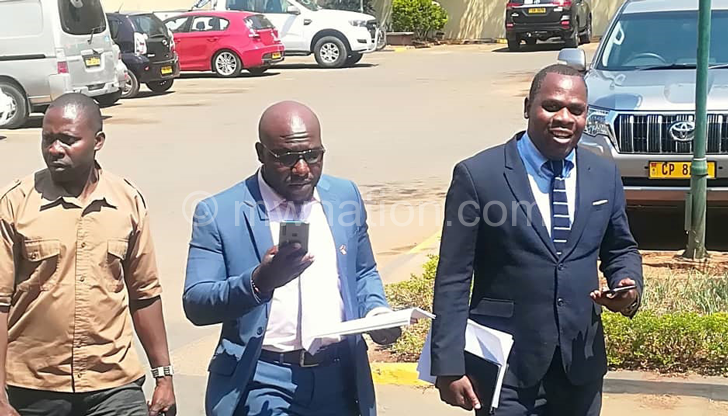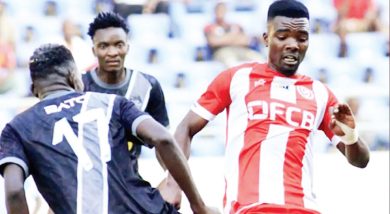AG, HRDC talks start amid bomb scare
Security concerns, including an alleged foiled grenade attack on a vehicle, nearly spoiled key discussions between Attorney General’s team and Human Rights Defenders Coalition (HRDC) members on how to manage future anti-Jane Ansha demonstrations.
Due to security concerns, the meeting had to be shifted three times from Civic Centre to Bingu International Convention Centre (BICC), before settling for Crossroads Hotel.

However, even at the hotel, the HRDC officials’ body guards claimed to have spotted an unknown person carrying what they alleged resembled a hand grenade, squatting near a vehicle belonging to the coalition’s vice-chairperson Gift Trapence.
At the time, HRDC officials—chairperson, Timothy Mtambo, Trapence and others—were outside the hotel waiting for government representatives, police and a team of lawyers from the Attorney General’s office.
The guard, who did not want to be mentioned, said the suspected bomber was chased and he ran towards Civo Stadium premises.
Said the guard: “We approached the man to apprehend him, but someone, who must have been his accomplice alerted him, so he took to his heels.”
Uniformed police officers, who at the time were inside the meeting room alongside the Attorney General’s team came out and ordered fellow law enforcers to patrol the car park—where the alleged incident took place.
Deputy Inspector General of Police (Operations and Administration) John Nyondo, who attended the meeting, did not grant journalists interviews to explain the issue of the bomb scare.
However, AG Kalekeni Kaphale, who was flanked by HRDC lawyer Khwima Mchizi, only took questions concerning the meeting, indicating that the two sides had agreed to meet again next Wednesday.
“I was not outside and did not witness anything,” said Kaphale when asked to comment on the alleged grenade scare.
According to the AG, there is need to do some planning and setting of agenda for the follow up meetings so as to make progress within the stipulated 14-day period by the court.
The Malawi Supreme Court of Appeal on Tuesday evening gave a 14-day moratorium that the two parties must hold negotiations on how HRDC can exercise the constitutional right to demonstrate without violence and crime.
On his part, Mchizi said the two parties will engage again on Wednesday as agreed, saying he is “hopeful an amicable solution will be found.”
But addressing journalists later, Mtambo said the incident could have been avoided as HRDC had suggested, that the meeting should take place at UNDP premises.
“We proposed that the dialogue meeting should take place at UNDP offices because of security concerns, but the government delegation refused,” he said.
Mtambo accused government of playing double standards, arguing that the meeting was not called in good faith as evidenced by the foiled attack.
“The questions we are asking ourselves are: Do we have security. Does anyone care about us? Are we citizens of this country? Is it that some people have become so special than all of us? The police were here in this compound how could the attack have happened?” querried Mtambo.
HRDC members later left the premises without police escort.
This is the third attempt the AG-HRDC meeting has failed to take place twice. The first was on August 15, when Mtambo’s house in Lilongwe was petrol-bombed in the wee hours. While the second was on August 21, which ended within five minutes after the HRDC asked for the withdrawal of an interlocutory application by Malawi Revenue Authority (MRA).
MRA had earlier applied to the High Court for an injunction to restrict HRDC planned demonstrations to outside its premises at the country’s borders and airports.
In his ruling, Justice Lovemore Chikopa said time should be given within which the parties can negotiate while respecting the suspension. He also said that care should be taken so that the moratorium does not turn into a backdoor ban.
Chikopa has since said that to give negotiations the best chance of success, there is a need for both parties to ensure that senior members attend, to make decisions there and then. He has also warned against prejudice during the proceedings.





